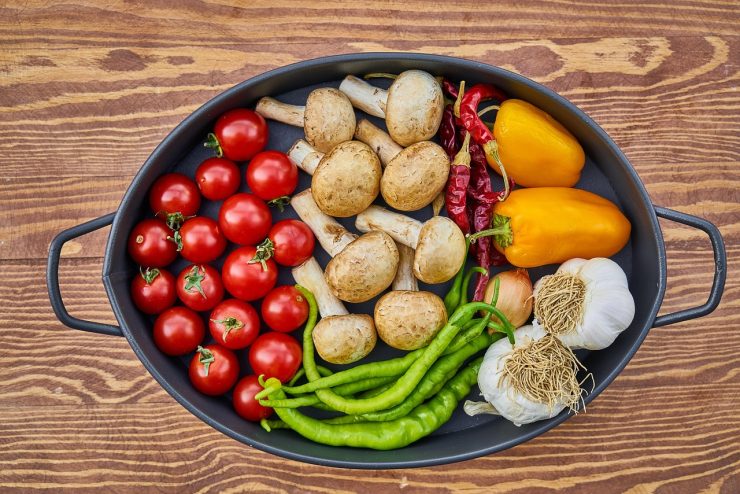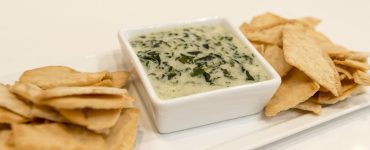Cancer is a word that carries a lot of weight, often prompting deep reflection and a reassessment of priorities. Taking action through lifestyle and dietary changes can make a meaningful difference in supporting the body’s natural defenses. Whether navigating a diagnosis or simply aiming to reduce long-term risk, nutrition plays a key role in promoting resilience and cellular health.
Certain foods can help strengthen the immune system, increase antioxidant activity, reduce inflammation, and even disrupt cancer cell growth. This isn’t about a single “miracle” food—but rather building an overall pattern of eating that helps the body protect and heal itself.
Here are some of the top food strategies for supporting the body in fighting cancer:
Support Cellular Health and Immune Function
1. Garlic & Allium Vegetables
Garlic, onions, leeks, and shallots are part of the allium family. These foods contain compounds like allicin, known for their antioxidant, anti-inflammatory, and immune-enhancing effects. Studies have linked garlic intake to lower risks of several cancers, especially in the digestive system.
2. Cruciferous Vegetables
Broccoli, kale, cabbage, and Brussels sprouts contain sulforaphane and indole-3-carbinol—compounds shown to promote detoxification and help protect healthy cells. Broccoli sprouts, in particular, are a concentrated source of these protective compounds.
3. Green Tea
Rich in EGCG and quercetin, green tea has been shown to reduce tumor growth in lab studies. It also supports the body’s own antioxidant systems, including glutathione and SOD.
4. Leafy Greens
Kale, collards, arugula, and watercress offer powerful antioxidants and phytonutrients that support immune regulation and detoxification. Bitter greens can help cleanse the liver and improve digestion—both essential for overall wellness.
5. Ginger
Ginger’s anti-inflammatory properties have been shown to interfere with cancer cell growth and even promote cell death in lab studies. It also helps alleviate nausea, including that caused by chemotherapy.
6. Turmeric (Curcumin)
Curcumin, the active compound in turmeric, has been studied for its ability to disrupt cancer cell replication and promote apoptosis. It’s particularly noted for its effect on breast, colon, liver, and prostate cancer.
7. Medicinal Mushrooms
Varieties like reishi, maitake, and turkey tail are rich in beta-glucans and other compounds that modulate immune activity. These mushrooms are often used in integrative cancer care around the world.
8. Pomegranate
Pomegranate contains polyphenols and tannins that work on multiple levels to reduce inflammation, protect DNA, and inhibit cancer cell spread. It’s especially effective against hormone-related cancers.
9. Berries
Blackberries, raspberries, blueberries, and cherries are rich in anthocyanins—compounds known to prevent DNA damage, reduce inflammation, and block tumor formation.
10. Brightly Colored Vegetables
Carrots, sweet potatoes, pumpkin, and red bell peppers are loaded with carotenoids like beta-carotene and lycopene, which help neutralize harmful free radicals and support immune resilience.
Additional Considerations
Ketogenic Diets and Intermittent Fasting
Some research suggests that low-carbohydrate, high-fat ketogenic diets may help starve cancer cells that rely heavily on glucose, while sparing healthy cells that can use ketones. Intermittent fasting may help initiate cellular repair processes and enhance fat metabolism.
Protein & Healthy Fats
While plant-forward diets are important, quality protein supports tissue repair and immune strength. Include moderate amounts of wild-caught fish, grass-fed meat, pastured poultry, and bone broth. Healthy fats from sources like olive oil, avocado, and nuts help the body absorb fat-soluble nutrients and regulate inflammation.
Avoiding Toxins
Minimizing exposure to harmful substances—like processed oils, refined sugars, alcohol, pesticides, and heavily processed foods—is key. These can fuel oxidative stress and disrupt hormonal balance.
A Holistic Approach
Fighting cancer isn’t just about food. A nourishing lifestyle includes:
-
Managing stress through meditation, mindfulness, or gentle movement
-
Spending time in nature and with supportive people
-
Prioritizing sleep and rest
-
Practicing gratitude and maintaining a hopeful, empowered mindset
Whether facing cancer now or simply working to prevent it, each choice matters. Every meal and moment of self-care helps support the body’s natural intelligence and healing potential.











